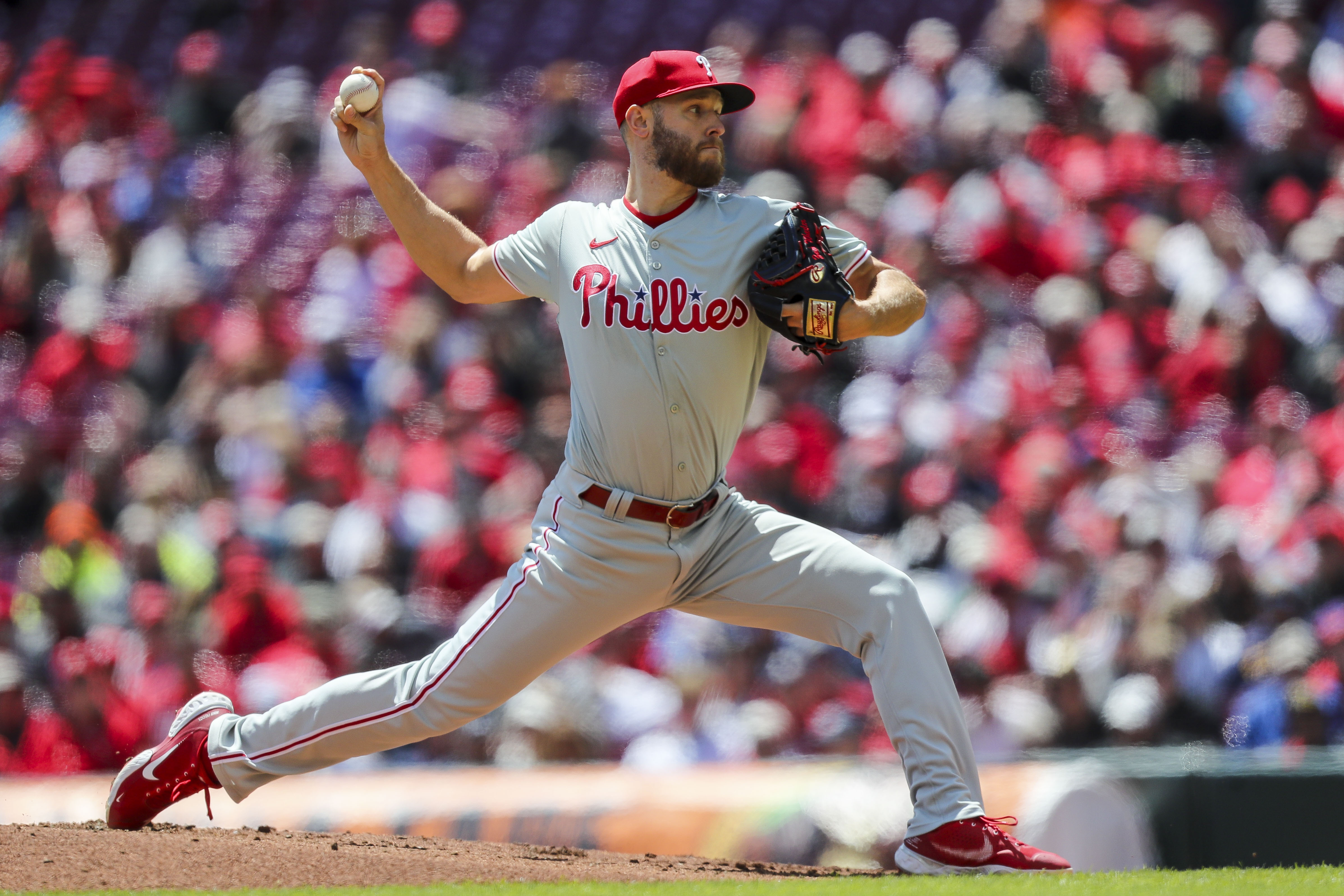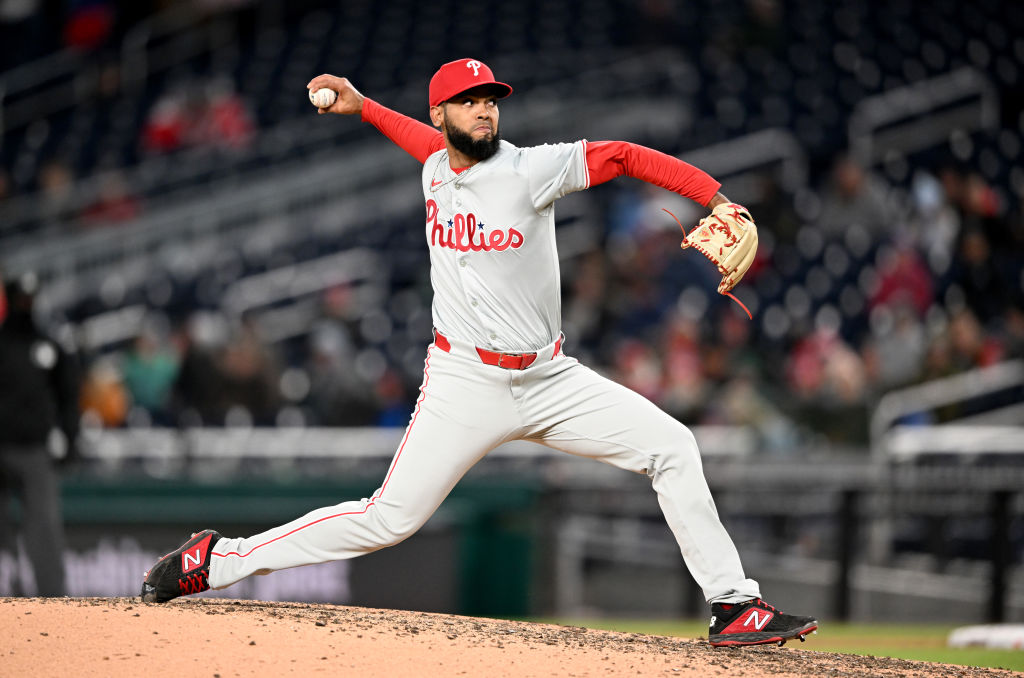Back in April 2010, Benny Looper and Sal Agostinelli were on one of their many talent hunts in the Dominican Republic when area scout Koby Perez suggested they take a look at a 20-year-old right-handed pitcher in the town of Villa Altagracia.
In a corner of the baseball world where the top prospects sign contracts the day they turn 16, a 20-year-old was ancient by comparison. But Looper, then the Phillies' assistant general manager in charge of scouting and player development, and Agostinelli, the team's longtime head of international scouting, believed in Perez so they went along for a look.
Looper immediately liked what he saw.
"Don't let this guy get away," he told Agostinelli and Perez.
That guy was Hector Neris.
Six years later, Neris has blossomed into a stalwart in the Phillies' bullpen and could be on his way to becoming one of the top relievers in baseball thanks to a power fastball and an out pitch that manager Pete Mackanin described as "invisible" after Neris used it to strike out the side in St. Louis on Tuesday night.
The invisible pitch is a split-fingered fastball that catcher Carlos Ruiz says is one of the best he's ever seen.
Philadelphia Phillies
Complete coverage of the Fightin' Phils and their MLB rivals from NBC Sports Philadelphia.
"It's a little bit like a knuckleball," Ruiz said. "Sometimes it goes straight down. Sometimes it runs and fades (away from a lefty hitter). As a catcher, you have to be ready for the movement.
"He can throw it any time in any count. The hitter can think about it, but he still has no chance because of the movement. Plus, he has to worry about a 94-mph fastball. That's why it's tough facing this guy. He's got real good stuff and he's throwing everything with confidence."
Stuff and confidence is a magical mix for a pitcher.
Neris, 26, has used the mix to hold opposing hitters to a .121 batting average so far. In 17 1/3 innings, he has given up just seven hits and two runs. He has struck out 27 of the 63 batters he has faced. That's 42.9 percent, the second-best mark among NL relievers. He has walked just four.
According to BrooksBaseball.net, opposing hitters are just 2 for 31 with 21 strikeouts against Neris' splitter, or as Mackanin calls it, the "invisible" pitch.
Mackanin was so impressed with the pitch this spring that he demanded to see more of it. During the final week of camp, with roster decisions looming, he pulled Neris aside and told him to throw three splitters for every one fastball. Neris ramped of his use of the pitch, made the club and in a month has ascended into a key setup role and become an important building block for the future, joining the likes of Aaron Nola, Vince Velasquez, Odubel Herrera and Maikel Franco.
Someday Neris could be more than a setup man.
"I think he could be a closer," Mackanin said.
Neris, who pitched in one game in the majors in 2014 and 32 last year, confirmed Ruiz's observation and noted that confidence has played a huge role in his success this early season. He said he likes knowing that he has a role and that the team's braintrust believes in him.
"He's really grown on us," pitching coach Bob McClure said. "He still has his ups and downs, but he's getting more comfortable and confident. Once you know you belong here and have the type of stuff he does, you can be successful. The key is knowing you belong here. I'm starting to see that. It takes a couple of years to start trusting your stuff."
There's a lot more to Neris' backstory than building confidence and honing his splitter on his way up the Phillies' minor-league ladder in winter ball.
Truth be told, he pitches with a little chip on his shoulder.
There was a reason he was an unemployed 20-year-old pitcher when the Phillies started watching him in 2010.
Two years earlier, he'd been discovered by scouts from the Kansas City Royals. In fact, Neris said he had a contract agreement with the Royals and spent time throwing in their academy in the DR in 2008 and 2009.
"They gave me back my contract because they doubted my documents," Neris said.
Major League Baseball has no record of an agreement or a contract between Neris and the Royals, but these types of handshake alliances are not uncommon. The pitcher's first entry in MLB's official database is his signing by the Phillies on April 29, 2010.
A person with Royals ties confirmed that the team was working to sign Neris. The deal was slow coming together because, at the time, MLB had launched strong efforts to verify Latin players' ages and identities. Neris was raised by his stepfather in the DR. This created some name confusion on the documents and Neris was sidelined for a year while the investigation proceeded without revealing any red flags. However, in that time, the Royals backed away from Neris because they weren't sure they could ever get him to the United States.
Neris was crushed when the Royals moved on from him. He briefly thought his dream to pitch in the majors was dead, but he kept throwing for anybody who would watch him.
"After Kansas City pushed me away I wanted to prove them wrong," he said. "It was motivation. I wanted to show them they made a mistake."
The Phillies were one of the first teams that Neris threw for after Kansas City moved on.
"I remember he had a good fastball and he showed a slider," Looper said. "He had a nice loose arm, a good delivery and a nice personality."
Agostinelli liked Neris, too.
"I can still hear Benny saying, ‘Don't let this guy get away,'" he said.
More teams wanted to see Neris and his buscone - a local independent scout who acts as a street agent for a players in Latin America - arranged for him to throw for a dozen teams one afternoon.
On the morning Neris was supposed to audition for those 12 teams, there was a knock on his door just before 7 a.m. It was Koby Perez.
"Don't throw," he told Neris.
The Phillies preempted the tryout with a contract offer of $17,000. Yeah, it was a modest sum of money considering what a lot of players get, but after all he'd been through in his bid to sign with the Royals, Neris was eager for a chance.
He did not go throw for the teams that wanted to see him that day.
He signed with the Phillies.
"I think sometimes players want to go somewhere they are liked," Looper said. "Most of the time money says how much someone likes you. But at that point, I think Hector just wanted the opportunity to play. I think he liked the things he heard from us and the relationship we had begun to build."
Neris confirmed that. And though Perez has moved on to the Cleveland Indians organization and Looper has cut back his schedule and moved into an adviser role with the Phillies, Neris considers them and Agostinelli to be family.
"Those guys were behind me the whole time," he said.



